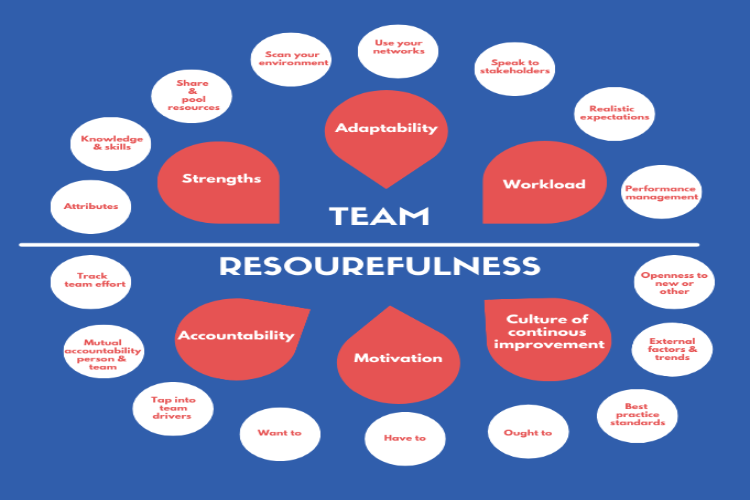On the hottest of days, the Crow dying of thirst, stumbled upon a pitcher of cool water. The pitcher was high and had a narrow neck. No matter how hard he tried, the Crow could not reach the water.
Then, an idea came to him. Picking up some small pebbles, he dropped them into the pitcher one by one. With each pebble the water rose a little higher until at last it was near enough so he could drink.
Aesop’s Fables are wonderfully short but everlasting on wisdom. Just like Aesop’s Crow, we see often see impressive agility and creativity in teams. Resourcefulness is another essential aspect of team resilience but what does it look like in everyday teamwork?
What makes a team ‘resourceful’?
A resourceful team will really harness team member strengths and resources whilst nurturing a culture of continuous improvement. The team will also have effective ways of working that enable it focus clearly on priorities.
There are many things which help a team to enhance its resourcefulness as we can see below

How can you develop your team to be more resourceful?
An excellent starting point to gauge just how resourceful your team is this checklist of key questions to ask about your team.
- How do we optimise our team resources when work is unpredictable? A team optimises resources best to it’s agreed priorities, not just what pops up.
- How do we manage underperformance in the team? How do we use underutilised resources in the team? Ignoring or glazing over team members not pulling their weight can cause resentment in the team. Fostering clear lines of individual and mutual accountability for results enhances teams.
- How we pull and share resources across our own team / with other teams? Knowing the strengths, qualities and talents within our team to draw on is central to navigating challenge.
- What is our attitude like to change: are we nimble in responding to changes around us? Rather than seeing people ‘for’ or ‘against’ change, talk as a team instead about how you can build flexibility to solve new issues and situations.
- How good is our team at creating a climate of continuous improvement? Resilient teams not only look at how they adapt to change but also for how they can drive it. How do we process changes (e.g., political, financial, social, environmental factors) which impact on the team’s work? Sharing ideas, innovations and review how the team deliver on outcomes is a key here.
- How do we manage our workloads? Unrealistic expectations about capacity to deliver can quickly demotivate a team. Creating a healthy team environment where we can raise and safely discuss issues of capacity serves a team well.
To learn more to help your team…
For additional information on how team resilience workshops, resilience assessment and coaching could work for your team, click here.
Source: Resilience at Work TM





 '
'